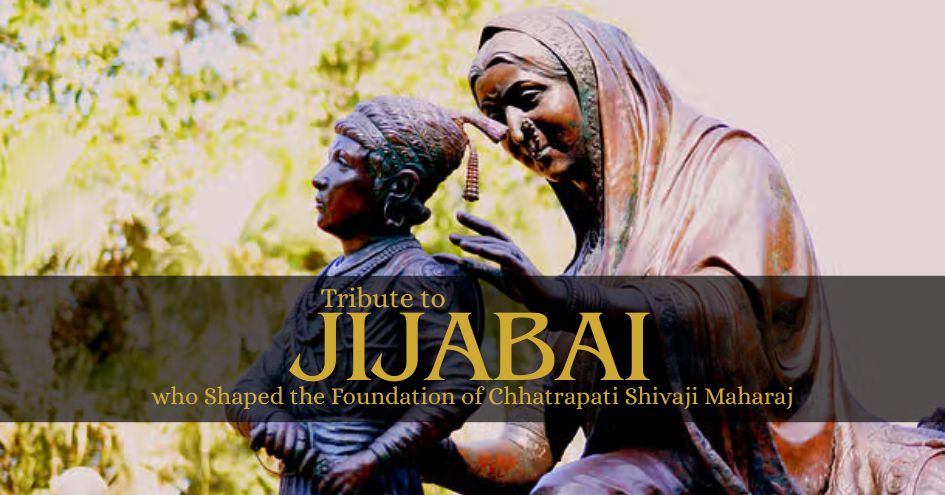
Tribute to Rajmata Jijabai on her Punyatithi. She left her mortal presence on the 17th of June in 1674 at the age of 76 years. She is the mother of Chhatrapati Shivaji Maharaj. Jijabai played an instrumental role in shaping the foundation of the young Shivaji as a warrior, who laid the base of the Maratha Empire.
Jijabai was born on 12 January 1598 to Mahalasabai Jadhav and Lakhuji Jadhav at Deulgaon village in Buldhana, Maharashtra. She was married to Shahji Bhosle. Her father was a mansabdar and her husband a military leader under the Nizam Shahi sultanate. Nizam Shah got her father Lakhuji Jadhav along with her brothers and a nephew murdered by treachery. It was the year 1627 when Jijabai was pregnant with Shivaji. Jijabai was then aged 29 years. During this time, her husband Shahji Bhosle was involved in conflict against the Mughals; hence, he left her at Shivneri Fort. A few days later, Shivaji was born. Jijabai and her son remained isolated from Shahji for several years. Six years later, Jijabai was arrested at Byzapur under the orders of Mughal general Mahabat Khan and brought to the Mughal camp. Her uncle Jagdeorao Jadhav intervened and took her to safety at Kande Fort. Meanwhile, Shahji Bhosle had already married for the second time and Jijabai remained isolated from her husband for over 10 long years. She raised the young Shivaji all alone. She moved from fort to fort and remained in hiding only to save her son Shivaji from the Mughals.
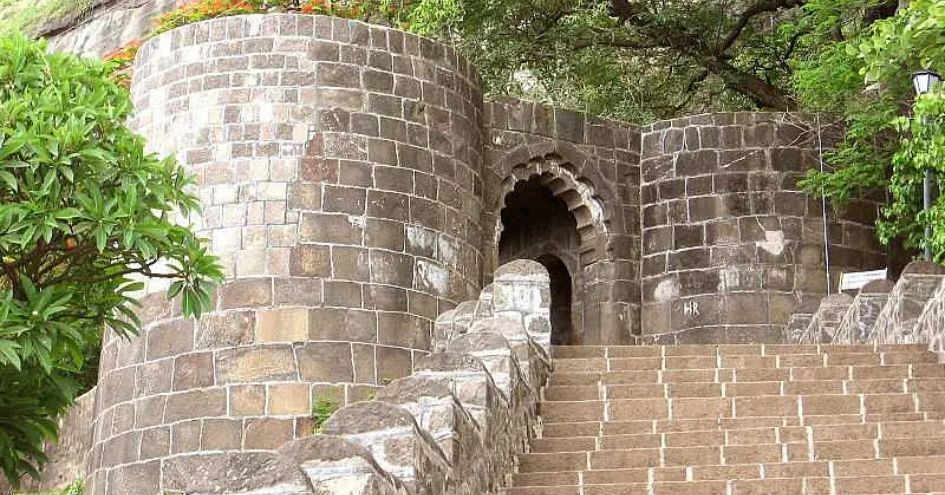
Jijabai was a mother with extraordinary endowments. All the while, she taught Shivaji the concept of Swarajya and got him trained in the art of warfare from a very young age. She also played the role as Shivaji’s teacher (in various subjects), friend, guardian, and a father. She narrated to him stories from the Ramayana, Mahabharata and recited to him verses from these epics. To further quote from Sardesai’s ‘Shivaji, the Great Maratha’, Volume 1, “One can see the foundation of Shivaji’s character in the circumstances in which he was born. During these ten or twelve years his character was shaped. His early childhood was spent in a state of constant alarm and fear of treachery; he had to flee from place to place lest his father's enemies should arrest him and his mother. For a child who was deprived of paternal affection for a decade, who being constantly impressed with an idea that Muslim rulers were the authors of all their miseries; it was only natural that as he grew up, he nurtured in his breast an uncompromising anti-Mahomedan passion."
Here are a few examples from the life of Chhatrapati Shivaji Maharaj as a warrior, the foundation of which was shaped by Jijabai.
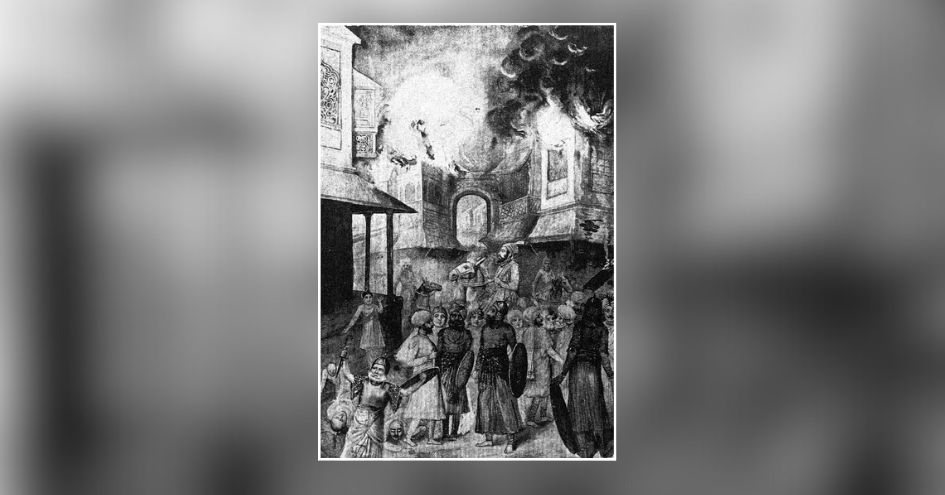
In January 1664, the Marathas under Chhatrapati Shivaji Maharaj defeated Aurangzeb’s Mughal forces led by Inayat Khan near Surat. The battle, known as the Battle of Surat, started on 5th January. The Marathas won. Surat was then a centre of sea trade under Mughals and a wealthy port city. For six days, the Marathas collected wealth, especially from Mughal and Portuguese trading centers and sacked the city. The local shipping centre in the port was set ablaze. After this attack, revenue of the Mughals reduced and trade for the Mughals in this port from thenceforth did not flourish. Shivaji used this wealth for strengthening his kingdom.
In retaliation, an angry Aurangzeb sent Jai Singh of Amber to curb Shivaji’s activities. Jai Singh in turn, collaborated with Shivaji to attack the Bijapur Sultanate. He also managed to send Shivaji to meet Aurangzeb, who was to celebrate his 50th birthday. But Aurangzeb, by deceit, imprisoned Shivaji and son Sambhaji in Agra. Later, after several months, Shivaji planned his escape and he was successful. It was 19th August 1666. To quote from the book ‘Shivaji and His Times’ by Jadunath Sarkar about Shivaji’s escape from Agra, “In the afternoon of 19th August, he sent word to his guards that he was very ill and had taken to his bed and that they should not disturb him. His half-brother Hiraji Farzand, who looked somewhat like him, lay down on his cot, with a quilt covering all his body except the outstretched right arm adorned with Shiva's gold wristlet, — while Shiva and his son crouched down in two baskets, which were safely sent out through the line of unsuspecting guards, being preceded and followed by baskets of real sweets, shortly after sunset.”
Aurangzeb held Ram Singh, the son of Jai Singh, responsible for Shivaji's escape. Though Aurangzeb banished Ram Singh from his court and took away his estates, he later pardoned him and sent him to fight against the Ahoms in Assam. The Ahoms led by Lachit Barphukan won this battle.
On 17th April 1675, Chhatrapati Shivaji Maharaj captured Ponda Fort in Goa, defeating Adil Shah armies. History describes the gruesome atrocities committed by the Portuguese Christians in Goa. They destroyed hundreds of Hindu temples in Goa by 1567 and burnt hundreds of Hindus alive at the stake. Portuguese also laid prohibition on rituals of Hindu marriages, sacred thread wearing ceremony and cremation. Chhatrapati Shivaji Maharaj carried fire and sword into the Portuguese territory of Goa, defeated them and annexed Bardes.
Shivaji could not tolerate the Mughals persecuting the Hindus. He thus declared war against the Mughals and started attacking and re-establishing Hindu supremacy in regions that were under Mughal dominion.
Today's Bharat needs another Chhatrapati Shivaji Maharaj for Dharma. A tribute to all mothers who raised their children to be warriors!
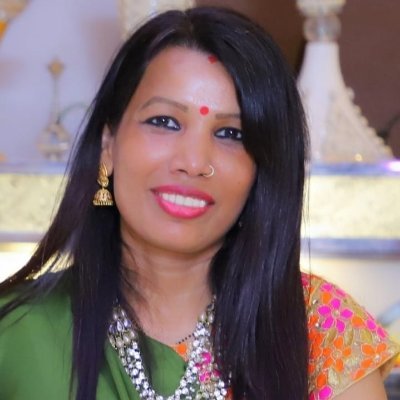
Manoshi Sinha is a best-selling author and history researcher celebrated for her insightful works on India's past. She is the author of several acclaimed books, including the recent and popular titles, 'The Manipur Conundrum' and 'Reclaiming Mathura'. Driven by a passion to showcase India's heritage, Manoshi Sinha is also the founder of myindiamyglory.com, an e-magazine that features the nation's story, from its ancient history to the present day.
PREVIOUS ARTICLE
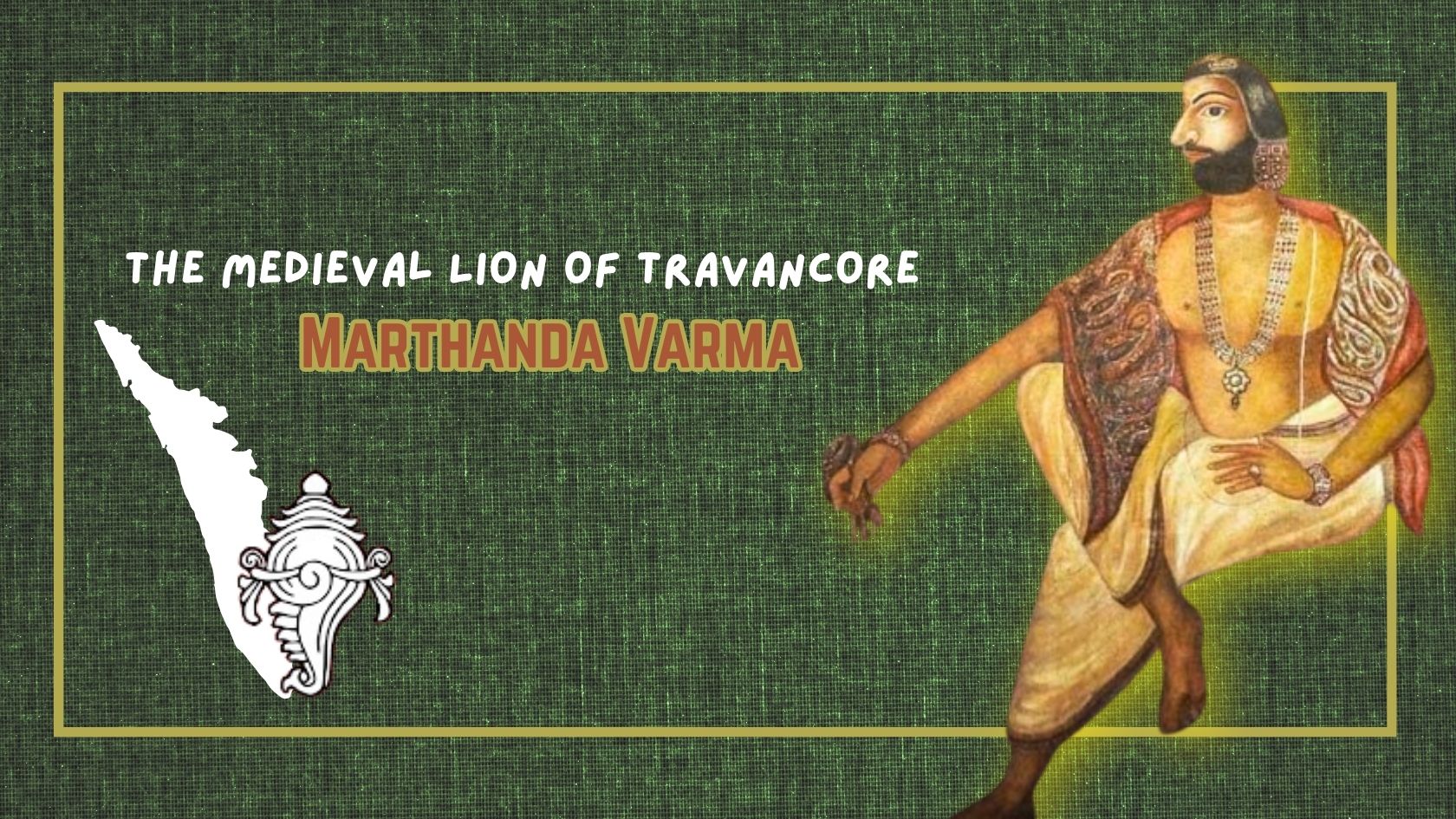
Shri Ramachandra Prasad's captivating narrative and the hot chai that was served at the right time transported me to ancient Kerala, where the extraor...
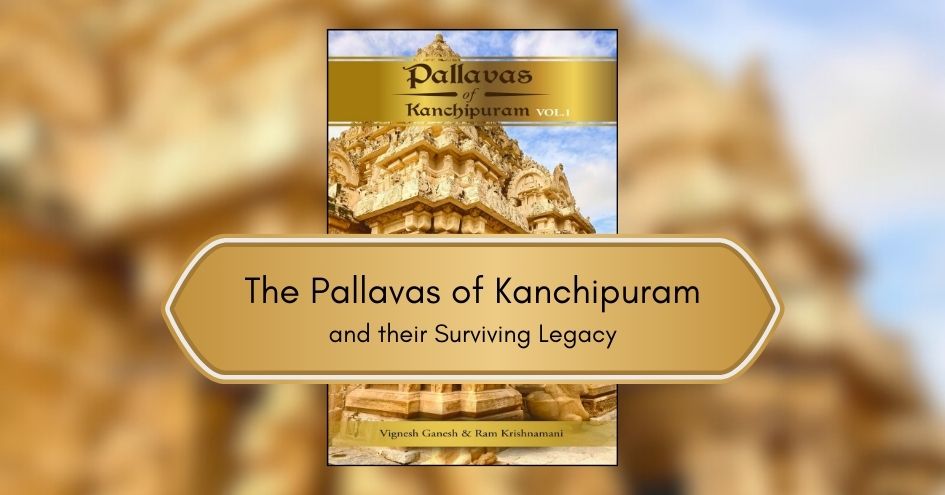
Introduction In Bharatvarsha, History is not the account narrated by victors. It is the record left behind by survivors. The study of Indian History...
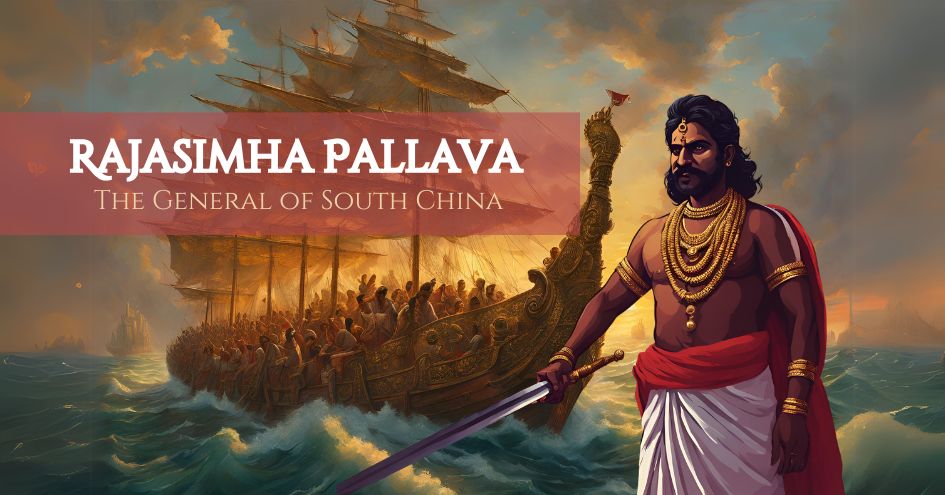
It is the first-half of the 8th Century C.E. in South India. The Pallava kingdom possesses strength and prosperity with some of the greatest monument...